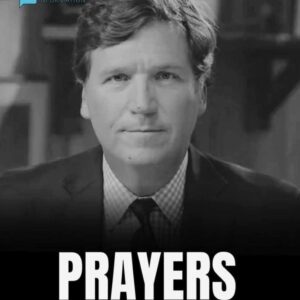The controversy surrounding the Temporary Protected Status (TPS) granted to over 530,000 Venezuelans has escalated into a legal showdown between the Trump administration and federal courts. The case, which is now under the jurisdiction of U.S. District Judge Edward Chen in California, pits the actions of former President Joe Biden’s administration against the efforts of President Donald Trump to reverse policies enacted during his predecessor’s tenure. At the heart of this case is the question of whether the administration can terminate the TPS designation for Venezuelan migrants, a decision that would have significant repercussions for both the individuals involved and U.S. immigration policy as a whole.
Background: The Venezuelan TPS Designation
TPS was granted to Venezuelans in the United States after their country was plunged into an economic and political crisis. The conditions in Venezuela, including hyperinflation, food shortages, and widespread violence, led to millions of Venezuelans fleeing to neighboring countries, with a significant number seeking refuge in the U.S. Under the Biden administration, TPS was extended to approximately 530,000 Venezuelans, providing them with legal status, work permits, and access to various social services. This decision was part of Biden’s broader immigration policy that emphasized a more lenient approach toward asylum seekers and undocumented migrants.
The key question now, however, is whether this decision will stand or whether President Trump’s administration, which has made border security and immigration enforcement a central tenet of its agenda, can reverse the benefits extended to these migrants. As Trump set out to curb illegal immigration and take a stronger stance against the protection of undocumented migrants, one of his first actions after returning to the White House was to challenge the existing TPS protections.
The Legal Obstacle: Judge Edward Chen’s Ruling
In a recent ruling, U.S. District Court Judge Edward Chen blocked President Trump’s plan to terminate the TPS status granted to Venezuelan migrants. The judge’s order stunned many in the political sphere and sparked outrage from Trump’s supporters, who saw this as an example of judicial overreach. Judge Chen, appointed by former President Barack Obama, issued a detailed opinion that justified his decision based on the economic and social contributions of Venezuelan TPS recipients. He argued that terminating TPS for this group would result in severe disruptions, including the loss of their livelihoods, families, and communities.
According to the judge, Venezuelan migrants, despite being undocumented, have shown a strong economic presence in the U.S. He pointed to the high educational attainment levels among this group and their significant contributions to the economy. Many Venezuelan TPS recipients are employed in key sectors, including agriculture, hospitality, and healthcare, where their work is considered essential. Judge Chen also noted that these migrants have high labor participation rates, often exceeding those of U.S. citizens, and that their deportation would cost the U.S. economy billions of dollars in lost productivity. This decision was based on the argument that deporting these individuals would lead to “irreparable harm,” not only to the individuals involved but also to the broader U.S. economy.
Trump’s Response: A Pushback Against Judicial Overreach
Trump and his allies were quick to denounce the ruling, labeling it an example of what they described as “judicial tyranny.” Stephen Miller, a prominent figure in Trump’s immigration policy circle, expressed his frustration with Judge Chen’s decision, accusing the judge of being motivated by political ideologies rather than a strict interpretation of the law. Miller’s comments reflected the broader sentiment among conservatives that federal judges, particularly those appointed by Democratic presidents, are overstepping their bounds by blocking the actions of an elected president. He and others argued that the U.S. Constitution gives the executive branch clear authority over immigration matters, and that judges should not be interfering with presidential decisions regarding border security and deportations.
Miller also noted that the ruling directly contradicted the intent of U.S. immigration laws, particularly the provisions in the TPS statute that limit judicial review of the government’s decisions. The judge’s decision was seen by critics as an extension of the judicial branch’s unchecked power, undermining the authority of the president to enforce immigration laws as he sees fit. The conflict between the executive branch and the judicial branch over immigration has become a key issue in the broader debate about the limits of judicial power in the U.S.
The Humanitarian and Economic Debate
Beyond the legal implications of this case, there is a significant humanitarian and economic debate surrounding the TPS status for Venezuelans. Supporters of the TPS extension argue that it is a compassionate response to the crisis in Venezuela and a reflection of the U.S.’s commitment to helping those in need. They point to the widespread hardships faced by Venezuelan migrants, many of whom fled political persecution, violence, and a collapsing economy. These migrants, they argue, have integrated into U.S. society and have contributed significantly to the workforce, especially during the COVID-19 pandemic when essential workers were needed the most.
However, opponents of TPS for Venezuelans argue that extending these protections to undocumented migrants only encourages more people to enter the U.S. illegally. They contend that the long-term costs of providing benefits to millions of undocumented individuals, including access to healthcare, education, and social services, outweigh the economic benefits. Additionally, critics of the policy point to the fact that some members of criminal gangs, such as the notorious Tren de Aragua, have been granted TPS, raising concerns about the safety and security implications of the policy.
The debate over TPS for Venezuelans also highlights broader concerns about the immigration system in the U.S. Many Americans are frustrated by what they perceive as a lack of control over the southern border, while others feel that policies like TPS provide a much-needed lifeline to individuals fleeing dire situations. This ongoing conflict underscores the need for comprehensive immigration reform that balances humanitarian concerns with national security and economic considerations.
The Politics of TPS and Immigration
The case over TPS for Venezuelans is not just a legal dispute; it is also deeply political. The decision to grant or rescind TPS is emblematic of the ideological divide in U.S. politics over immigration. For Republicans, Trump’s hardline stance on immigration is seen as a necessary step to protect American workers and secure the border. For Democrats, granting TPS to migrants is a reflection of American values, offering protection to those fleeing persecution while contributing to the economy.
As the legal battle over TPS continues, the political ramifications are likely to shape future elections. The issue of immigration has been a central focus of U.S. politics for decades, with both parties attempting to use it to rally their respective bases. For Republicans, the promise of stricter border enforcement and a reduction in illegal immigration is a key part of their platform. For Democrats, the protection of migrants, particularly those fleeing violence and persecution, is a moral imperative that defines their stance on immigration.
As this case progresses through the courts, it will undoubtedly fuel further debates about the future of U.S. immigration policy. The outcome could have far-reaching implications for future administrations and their ability to shape immigration laws and enforcement practices. It will also set the stage for the 2024 elections, where immigration is likely to remain a top issue.
The Political and Economic Implications of TPS for Venezuelans
The case surrounding the Temporary Protected Status (TPS) for Venezuelans has escalated far beyond the courtroom, reverberating through political circles, government institutions, and public discourse. The decision to extend TPS to Venezuelans by the Biden administration and President Trump’s subsequent efforts to rescind it underscores the deep ideological divide within U.S. politics when it comes to immigration. For many, this issue reflects not only concerns about immigration policy but also broader questions about national identity, economic impact, and social justice.
The Political Battle Over Immigration
Immigration has long been a polarizing issue in U.S. politics, and the fight over TPS for Venezuelans highlights the stark contrasts between the two major political parties. On one side, there are the Democrats, who argue that the U.S. has a moral obligation to protect vulnerable populations and provide asylum to those fleeing crisis, particularly from countries like Venezuela, which has faced political instability, violence, and economic collapse. On the other hand, Republicans and conservatives generally emphasize the need for strict border enforcement, arguing that granting TPS and similar protections to large groups of migrants undermines national security and sends the wrong message about U.S. immigration policy.
The political stakes in this case are high, as immigration has become one of the most contentious issues in U.S. elections. For Democrats, supporting policies that protect immigrants is a key part of their platform, and they see the extension of TPS to Venezuelans as part of a broader effort to provide refuge to those in need. For Republicans, opposing such policies is often seen as a way to appeal to their base, particularly those who feel that the U.S. is being overrun by illegal immigration and that the government is not doing enough to secure the border.
As President Trump fights to overturn the Biden administration’s decision to extend TPS to Venezuelans, the issue has become a flashpoint in the broader debate over immigration reform. Whether or not Trump can successfully rescind TPS for Venezuelans will have significant political consequences, not only for his presidency but also for the future of U.S. immigration policy.
The Economic Impact of TPS for Venezuelans
In addition to the political ramifications, the issue of TPS for Venezuelans also has significant economic implications. Those who support the extension of TPS argue that the program provides a much-needed safety net for migrants who have already made significant contributions to the U.S. economy. Venezuelans who have been granted TPS are working in various industries, including agriculture, construction, and healthcare, where they fill vital labor shortages. Many TPS recipients have become essential workers during the COVID-19 pandemic, performing jobs that are critical to maintaining the country’s infrastructure and economy.
Furthermore, proponents of TPS argue that these migrants contribute to the U.S. economy in other ways, including by paying taxes and supporting local businesses. According to some estimates, Venezuelan migrants contribute billions of dollars to the U.S. economy each year. For example, a report from the Center for American Progress found that immigrants, including those with TPS, add more than $2 trillion to the U.S. economy annually, making up a significant portion of the nation’s GDP.
Critics of the program, however, argue that the financial burden of supporting TPS recipients is too high and that the U.S. should not bear the cost of providing welfare, healthcare, and other benefits to undocumented migrants. They contend that the government should prioritize American citizens and legal residents over undocumented immigrants and that extending TPS to large groups of migrants exacerbates the already-strained resources in many communities.
One of the key issues in the debate over the economic impact of TPS is the strain on public services, such as healthcare, education, and social security, that is often cited by critics. Supporters, on the other hand, argue that TPS recipients contribute more to the economy than they take, and that providing them with temporary protection and work authorization benefits both the migrants and the U.S. economy as a whole.
The Security Concerns: Criminal Gangs and National Security
Another significant issue in the debate over TPS for Venezuelans is the presence of criminal gangs among those who have been granted protection under the program. One of the most concerning aspects of the Venezuelan migration crisis is the rise of organized crime groups such as Tren de Aragua, which have reportedly infiltrated migrant communities and carried out illegal activities across the U.S. These criminal organizations have been linked to drug trafficking, human trafficking, and violent crimes, and their presence in the U.S. has raised concerns about public safety and national security.
While the vast majority of Venezuelan migrants are not involved in criminal activity, there is a growing concern about the infiltration of gangs among those granted TPS. Some of these gangs have been able to take advantage of the protections afforded by TPS to establish themselves in U.S. communities, where they exploit vulnerable populations and engage in illegal activities. This issue has further fueled the argument among critics that extending TPS to large numbers of migrants, particularly those from countries with unstable political situations, poses a security risk to the U.S.
The Trump administration has made cracking down on transnational criminal organizations a central part of its immigration policy, and this has included efforts to deport members of gangs like Tren de Aragua back to their home countries. The use of the Alien Enemies Act, which allows for the deportation of foreign nationals associated with terrorist organizations or criminal gangs, has become a key tool in the administration’s effort to target these criminal elements. However, the legal challenges to this approach, including the case involving TPS for Venezuelans, demonstrate the complexities of addressing national security concerns while also upholding the rights of individuals who are seeking refuge.
The Role of the Judiciary in Immigration Policy
The case over TPS for Venezuelans also highlights the growing role of the judiciary in shaping U.S. immigration policy. As the courts have become increasingly involved in disputes over immigration, the balance of power between the executive branch and the judiciary has become a central issue in the debate. Some critics argue that judges are overstepping their bounds by blocking the actions of the president and Congress, while others contend that judicial oversight is necessary to ensure that immigration laws are applied fairly and that the rights of migrants are protected.
In the case of TPS for Venezuelans, Judge Edward Chen’s ruling to block President Trump’s efforts to rescind the program is an example of how the courts have become an important player in immigration policy. The decision has sparked a heated debate about the limits of judicial power and the role of the courts in shaping national security and immigration laws. As the case moves forward, it will likely set a precedent for how future administrations and courts handle similar challenges to immigration policy.
The involvement of the judiciary in immigration policy has led to calls for reforms to the system, including efforts to clarify the roles of the executive branch and the courts in matters of national security and immigration enforcement. This ongoing legal battle underscores the complexity of the issue and the difficulty of finding a balanced approach that addresses both security concerns and humanitarian obligations.
The Future of TPS and U.S. Immigration Policy
The debate over TPS for Venezuelans is just one chapter in the broader story of U.S. immigration policy, but it serves as a microcosm of the challenges facing the country as it grapples with how to handle millions of undocumented immigrants and asylum seekers. The future of TPS, and of U.S. immigration policy more broadly, remains uncertain, with legal, political, and economic considerations shaping the direction of the debate.
For now, the legal battle over TPS for Venezuelans continues, and the outcome will have significant implications for the future of U.S. immigration policy. If the courts side with the Biden administration and uphold the TPS designation for Venezuelans, it will represent a significant victory for those advocating for more inclusive immigration policies. On the other hand, if the courts rule in favor of the Trump administration and overturn the TPS designation, it will signal a shift toward stricter immigration enforcement and a more restrictive approach to asylum seekers.
As the case progresses through the courts, it will likely fuel further debates about the role of the judiciary in shaping immigration policy, the impact of TPS on U.S. security and the economy, and the broader implications for the future of U.S. immigration law. Whatever the outcome, the fight over TPS for Venezuelans will continue to be a key issue in the ongoing debate about the direction of U.S. immigration policy and the role of the U.S. government in addressing the challenges of immigration and national security.
The Long-Term Consequences and Implications for U.S. Immigration Policy
As the legal battle surrounding the Temporary Protected Status (TPS) for Venezuelans continues, it’s crucial to understand the broader consequences of the ruling and how it may affect the future of U.S. immigration policy. This case is not merely about one group of immigrants but rather represents a pivotal point in the ongoing debate regarding national security, economic concerns, humanitarian responsibilities, and the role of the judiciary in shaping immigration laws.
The Broader Debate Over Immigration Enforcement
The case involving TPS for Venezuelans is symptomatic of a larger issue facing the U.S.: how to balance the enforcement of immigration laws with the country’s historical commitment to providing refuge for those in need. The legal decision regarding TPS will likely have long-term effects on the future of similar humanitarian programs, potentially reshaping the way the U.S. addresses its immigration system and its treatment of vulnerable populations.
TPS is a program that has been used by multiple administrations to grant temporary protection to individuals fleeing conflict, environmental disasters, or other severe circumstances in their home countries. For many migrants, TPS has offered a sense of stability and the opportunity to rebuild their lives in the U.S. But as the Trump administration’s efforts to rescind the program highlight, the growing concerns over immigration, security, and national sovereignty have led to more stringent approaches.
The question of whether to continue such protections remains a point of contention. While advocates argue that programs like TPS are vital for providing safety and security to those fleeing violence and oppression, critics contend that these programs undermine national security by potentially admitting individuals from countries with known security risks, including members of criminal gangs like Tren de Aragua.
For policymakers, the challenge lies in determining how to secure the border while still honoring the U.S.’s humanitarian obligations. The legal wrangling over TPS, and its eventual outcome, could influence future decisions on whether to extend or curtail these protections for other groups of migrants from countries in crisis, such as Honduras, El Salvador, or Guatemala.
National Security Concerns and the Role of Criminal Gangs
One of the primary concerns surrounding the extension of TPS to Venezuelans has been the infiltration of criminal organizations, particularly gangs like Tren de Aragua and MS-13. These transnational criminal groups have become increasingly active in the U.S., with members using the protections afforded by TPS to establish criminal operations within American borders.
The rise of criminal activity associated with some of the migrants under TPS has become a central point of contention in the debate over the program. While the vast majority of TPS recipients are law-abiding individuals seeking refuge, the presence of criminals who exploit the system for their benefit has raised concerns about public safety. These gangs have been linked to drug trafficking, human trafficking, and violent crimes, and their presence in the U.S. has prompted law enforcement agencies to take stronger action.
The Trump administration’s “zero tolerance” stance on immigration has been partly driven by a desire to combat these criminal elements. By invoking the Alien Enemies Act and targeting criminal gang members for immediate deportation, the administration has taken a hardline approach toward criminal migrants. However, the use of this law has raised legal challenges, as seen in the case of TPS for Venezuelans, where the judiciary has weighed in on the administration’s actions.
For many, the challenge is finding a way to differentiate between the innocent individuals seeking refuge and those who have exploited the system for criminal purposes. Some believe that more comprehensive vetting processes and stronger enforcement mechanisms are necessary to ensure that criminals do not benefit from humanitarian programs like TPS. However, others argue that the U.S. should continue to extend protections to those fleeing violence and oppression, while simultaneously strengthening efforts to target criminal organizations and prevent them from exploiting the system.
Economic and Social Impacts of TPS Rescission
Beyond national security concerns, the rescission of TPS for Venezuelans could have significant economic implications, both for the migrants affected and for the broader U.S. economy. The migrants covered under TPS often work in industries such as construction, agriculture, and healthcare, contributing to the U.S. economy in meaningful ways.
According to estimates, the presence of TPS recipients, including Venezuelans, has added billions of dollars to the U.S. economy. They contribute to the workforce, fill essential jobs, and pay taxes, including Social Security contributions, which help support the country’s aging population. Without these workers, some sectors of the economy could face labor shortages, particularly in industries that rely heavily on immigrant labor.
Additionally, TPS recipients often send remittances back to their home countries, which plays a critical role in supporting their families and local economies. The removal of TPS protections could disrupt this economic activity, not only harming the migrants affected but also creating ripple effects in their home countries.
On the other hand, opponents of TPS argue that the program strains public services and resources. They claim that taxpayers are footing the bill for welfare, healthcare, and other services provided to migrants, which could be better spent on American citizens. Furthermore, critics argue that large-scale immigration, including through programs like TPS, drives up housing costs and depresses wages for low-income Americans.
The economic impact of rescinding TPS for Venezuelans is a complex issue, and its full ramifications would likely depend on how quickly the U.S. could adjust to the loss of workers in key industries. The political battle over TPS, and the eventual ruling on this issue, will likely shape future decisions regarding immigration policy and its impact on the U.S. economy.
The Role of the Courts in Shaping Immigration Policy
As we have seen in the case of TPS for Venezuelans, the courts have become increasingly involved in shaping U.S. immigration policy. The role of the judiciary in reviewing executive actions, such as the Trump administration’s attempt to rescind TPS, has sparked a broader debate about the separation of powers and the scope of judicial authority.
Some argue that judges should play an active role in overseeing the actions of the executive branch to ensure that the rights of migrants are protected and that the U.S. adheres to its international commitments. Others, however, contend that the courts are overstepping their bounds by interfering in matters of national security and immigration enforcement, which should be the prerogative of the elected branches of government.
The case of TPS for Venezuelans raises important questions about the role of the judiciary in immigration matters. If courts continue to block the Trump administration’s efforts to rescind TPS, it could signal a shift in how future administrations approach immigration enforcement. The ultimate decision in this case will have significant implications for the balance of power between the executive and judicial branches and could shape the direction of U.S. immigration policy for years to come.
The Future of TPS and U.S. Immigration Policy
The outcome of the case regarding TPS for Venezuelans will have far-reaching consequences for the future of U.S. immigration policy. If the courts side with the Biden administration and uphold the TPS designation for Venezuelans, it will signal a victory for those advocating for more inclusive immigration policies. On the other hand, if the courts rule in favor of the Trump administration and overturn the TPS designation, it will represent a shift toward stricter immigration enforcement and a more restrictive approach to asylum seekers.
Regardless of the outcome, the debate over TPS for Venezuelans is just one chapter in the ongoing story of U.S. immigration policy. The future of TPS, and of U.S. immigration policy more broadly, remains uncertain, and the legal, political, and economic implications of this case will continue to shape the debate.
As the case moves through the courts, it will likely fuel further discussions about the role of the judiciary, the balance of power between the branches of government, and the future of U.S. immigration law. One thing is certain: the fight over TPS for Venezuelans will continue to be a critical issue in the broader conversation about the direction of U.S. immigration policy, national security, and the treatment of vulnerable populations. The stakes are high, and the outcome of this case will set a precedent for future immigration-related legal battles.





